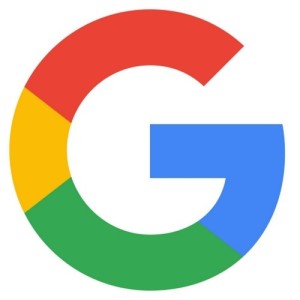CCI orders probe into alleged abusive conduct of Google in imposing conditions for use of its Android OS on smartphone manufacturers in India


By way of order dated 16.04.2019, the Competition Commission of India (“CCI/Commission”) has ordered investigation by the Director General against the alleged abusive conduct of Google (“DG”) pursuant to forming a prima facie view that Google LLC and Google India Pvt Ltd (collectively referred to as ‘Google’) is abusing its dominant position and thereby has reduced the ability of device manufacturers to opt for alternate versions of its Android mobile Operating System (OS).
Background and Allegations
The information before the CCI was filed by the consumers of the Android smartphones against Google LLC and its Indian subsidiary Google India Pvt Ltd (“Google India”) alleging abuse of dominant position. The information stated that Android is an open source mobile operating system which can be developed by anyone and majority of the smartphone and tablet manufacturers in India use the Android operating system in combination with a range of Google’s propriety applications and services i.e. the Google Mobile Services (GMS). GMS includes a wide range of Google Apps such as Google Maps, Gmail, YouTube which are allegedly only available through GMS and cannot be downloaded separately by device manufacturers and in order to install these applications, the manufacturers are required to enter into certain agreements with Google: (a) Mobile Application Distribution Agreement (MADA) and (b) Anti Fragmentation Agreement (AFA). The informants alleged that Google has engaged in different kinds of anti-competitive practices, either in the market in which they are dominant or in separate markets, in order to cement Google’s dominant position in Online General Web Search Services and Online Video Hosting Platform (through YouTube).
The allegations primarily focused on the following:
- Google mandates smartphone and tablet manufacturers to exclusively pre-install Google’s own applications or services in order to get any part of GMS in smartphones manufactured in/sold in/ exported to/marketed in India.
- Google ties or bundles certain Google applications and services such as Google Chrome, YouTube, Google Search etc. with other Google applications, services and/or application programming interfaces of Google.
- Google prevents smartphone and tablet manufacturers in India from developing and marketing modified and potentially competing versions of Android (Android forks) on other devices.
The informants alleged that the above-mentioned practices has hindered the development and market access of rival mobile applications or services and also restricted access to innovative smart mobile devices based on alternative, potentially superior versions of the Android Operating System.
The informants delineated four distinct markets in which Google is allegedly dominant:
- Licensable Smart Mobile Operating System: The informants provided that there are 3 options for mobile Operating Systems i.e. Android, Apple’s iOS and Windows Phone and only Android is a licensable OS which makes it different from other OS which are used exclusively by vertically integrated companies and are not available for licensing. The informants alleged that Google is dominant in India as in 2017, Android accounted for 80% of India’s mobile OS market. The informants also relied upon the European Commission’s decision in the “Android Decision”[1] where Google was found to be dominant in the markets for general internet search services, licensable smart mobile OS.
- App stores for the Android Mobile OS: The information stated that Google’s Play Store is the biggest app store in the world with more than 3.6 million apps and as per the ‘Android decision’, it accounted for more than 90% of the apps downloaded on Android devices.
- Online Video Hosting Platform (OVHP): The information also alleged that OVHP i.e. YouTube is a distinct relevant market which provides free access to consumers and monetizes its platform through advertisements and is distinct from Video on Demand service e.g. Netflix which is a subscription-based model. The informants provided that YouTube has over 930 million subscribers in India of which 300 million use smartphones and 85% of the content streamed on YouTube is consumed on mobile phones.
- Online General Web Search Service: The informants stated that the market for online general web search services is distinct from the market for specialized/vertical search service as well as search advertising. The informant also placed reliance on the Commission’s earlier decision in com v Google LLC in which the CCI had defined the market for Online General Web Services as a distinct relevant product and found Google to be dominant.
Analysis of the Commission
Relevant market
While delineating the relevant market for its prima facie analysis, CCI noted that the OS designed for mobile devices are different from operating systems designed for desktop computers in terms of use and each manufacturer designs the device as per the OS it is going to use on it. Further, from the OEM’s perspective, only those OS are accessible to them which are licensed by the developers and therefore the non-licensable operating systems such as iOS does not become part of the same market. Accordingly, the Commissions held that relevant market will be ‘market for licensable smart mobile device operating systems in India’. In addition to this, the Commission also observed that it would be necessary to examine certain associated relevant markets and prima facie the relevant markets proposed by the informants was also taken into consideration, in which the CCI agreed with the informants that Google was dominant as established by the European Commission as well CCI itself in its earlier decisions.
Conduct of Google
CCI observed that MADA requires the device manufacturers to pre-install the entire suite of Google apps and in pre-determined positions, in order to preinstall Google mobile apps. Further, signing an Android Compatibility Commitment (ACC) is a condition of MADA and these two agreements entail the following restrictions: (i) ) In order to be able to preinstall Google’s proprietary apps, device manufacturers have to commit to comply with the Android Compatibility Definition Document (CDD) for all devices based on Android manufactured/distributed/sold by them; and (ii) In order to be able to preinstall any proprietary app of Google, e.g. Play Store, device manufacturers will have to preinstall the entire suite of Google apps.
Interestingly, although the CCI acknowledged the submission of Google that licensing of Android OS is not conditional upon signing of either of the two agreements i.e. MADA and ACC, the Commission was of the prima facie view that since Google Play Store is a “must have” app and the users have an expectation of it to be preinstalled on their devices, there is high probability that the marketability of the Android devices may get restricted if these agreements are not signed, therefore, making these agreements ‘de facto compulsory’. Accordingly, CCI noted that by making pre-installation of Google’s proprietary apps such as Google Play Store conditional upon signing of ACC for all android devices manufactured/distribute/marketed, Google has reduced the ability and incentive of devices manufacturers to develop and sell devices operating on alternative versions of Android.
The Commission, although, took note of Google’s submissions that the (i)Android users have considerable freedom to customize their phones and to install apps that compete with Google’s (ii)the stipulations in the ACC are necessary to serve the legitimate purpose of preventing fragmentation (ii) MADA pre-installation conditions are not exclusive or exclusionary , however, held that these contentions can only be appropriately addressed during the investigative stage through validation from device manufactures, application developers, independent experts and consumers.
As regards the allegation of mandatory pre-installation of entire GMS suite under MADA, CCI observed that under MADA, Google offers its mobile apps and services to device manufacturers as a bouquet, which includes the Google Play Store, the Google Search widget and a folder containing multiple Google apps including Google Chrome browser. Further, as per the conditions of MADA, the device manufacturers who sign this agreement cannot pick and choose from amongst the GMS suite of apps for pre-installation and this entails compulsory tying of ‘must have’ Google apps (such as Play Store), which the device manufacturers would like to have on their devices with other apps where other credible alternatives may be available. Therefore, the CCI was of the prima facie view that mandatory pre-installation of entire GMS suite under MADA amounted to imposition of unfair condition on the device manufacturers and also amounted to prima facie leveraging of Google’s dominance in Play Store to protect the relevant markets such as online general search.
Comment: This investigation ordered against Google by CCI in India is a sequel to similar inquiries undertaken in EU and was expected . The outcome will be interesting to watch since in this inquiry , Google gets another chance to prove that it does not intend to reduce or eliminate competition by insisting upon signing of contracts with mobile manufacturers prior to pre installation of its proprietary Apps , particularly, Google Play Store or is not leveraging its admitted dominance in the online general search market to protect its dominance in markets for Play Store and vice versa.
[1] Case No 40099







